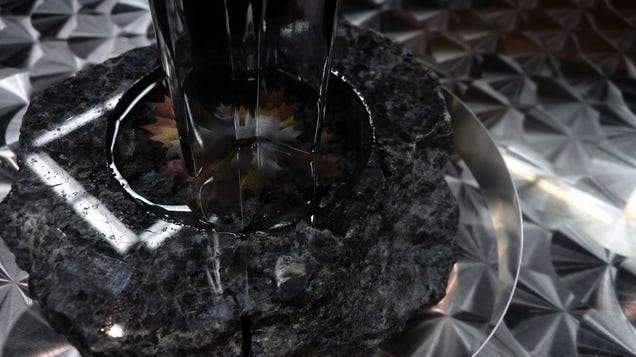
Last August, the Hugo Awards were swept by a younger group of women and people of color. At the time, we said "This was really a year that underscored that a younger generation of diverse writers are becoming central to the genre." So maybe it's not surprising that there was an organized backlash.
Top image: Cory Doctorow/ CC-by-2.0
The new slate of Hugo Awards nominees were just announced, and you can read the list at the link. Suffice to say, the nominees in pretty much every category (other than Best Novel) come pretty much exclusively from a fan campaign called Sad Puppies, organized by Brad R. Torgersen and Larry Correia. Last year, Correia organized a campaign which successfully placed one item in each category on the Hugo slate — so this year, they decided to go further. As John Scalzi has pointed out, this was not against the spirit or the letter of the Hugo Awards rules.
The Hugo Awards are voted on by fans, and anyone who purchases a supporting membership at Worldcon can nominate two years in a row. (And typically, it doesn't take that many votes to nominate something successfully.) To Torgersen and Correia, this meant that a "rarefied, insular" group of writers were promoting their agenda by nominating works by women and people of color. To the rest of us, it looked as though science fiction and fantasy were finally catching up to reality — the best stories aren't only the ones told by straight white men.
Torgersen has argued that the real problem isn't just a trend towards nomination of diverse works, but also nominees that reflect literary, rather than popular, tastes. He's tended to paint "fandom" (meaning Worldcon attendees) as being out of touch with pop culture, and elitist. As he wrote in January, "while the big consumer world is at the theater gobbling up the latestAvengers movie, 'fandom' is giving 'science fiction’s most prestigious award' to stories and books that bore the crap out of the people at the theater: books and stories long on 'literary' elements... while being entirely too short on the very elements that made Science Fiction and Fantasy exciting and fun in the first place." Which is a legitimate point of view, although it ignores the many Hugo winners that were essentially popular fiction. And plenty of people have criticized the Hugos from the opposite direction — for ignoring challenging literary works in favor of pop fiction.
In any case, this slate of nominees has already launched a Twitter firestorm, and lots of people are planning to vote "No Award" in every category except "Best Novel." It's definitely a weird turn of events that, the year after Kameron Hurley's double win, we see list of nominees that includes someone published by "Patriarchy Press." And this new slate can only really be understood against the backdrop of ongoing, vicious fights over racism in science fiction — we could be here all day picking through the entrails, but author N.K. Jemisin gives you all the context you need to know here.
The Hugo Awards have always been "political," in the sense that people campaigned for them (even though I guess that was officially frowned upon.) And they were political, in that they were seen as a reflection of who gets recognition for writing science fiction and fantasy. When the nominees are mostly white men, as they have been during most eras except for the mid-1990s and the past five years, it does send a message about whose work is going to be considered valuable. And people have certainly critiqued that in previous years.
But this year's list of nominees seems to herald the beginning of the Hugos becoming "political" in the sense that each "side" will have its own recommended slate of nominees. People won't get to spend months chewing over the best things they read in the previous year and grappling with their own consciences about what to nominate — instead, each side will have to decide early on which standard-bearers to double down on. Either that, or we'll see some other solution.
Honestly, you're never going to have a perfect system for identifying the best works of fiction published in a given year — even with a juried award, these decisions will inevitably wind up including factors that are external to the quality of the work. So the best you can hope for is that the quality of the work winds up getting considered first and foremost, over other factors. The only processes that really get you there are deliberative, involving a lot of public discussion and private rumination. That's how you get surprising, out-of-nowhere choices. As someone who won a Hugo Award in 2012, I'm sad that there might be one less avenue out there for new writers to be plucked from obscurity and put on a stage with their idols.
from ffffff http://io9.com/the-hugo-awards-were-always-political-now-theyre-only-1695721604
via IFTTT







0 comentarios:
Publicar un comentario